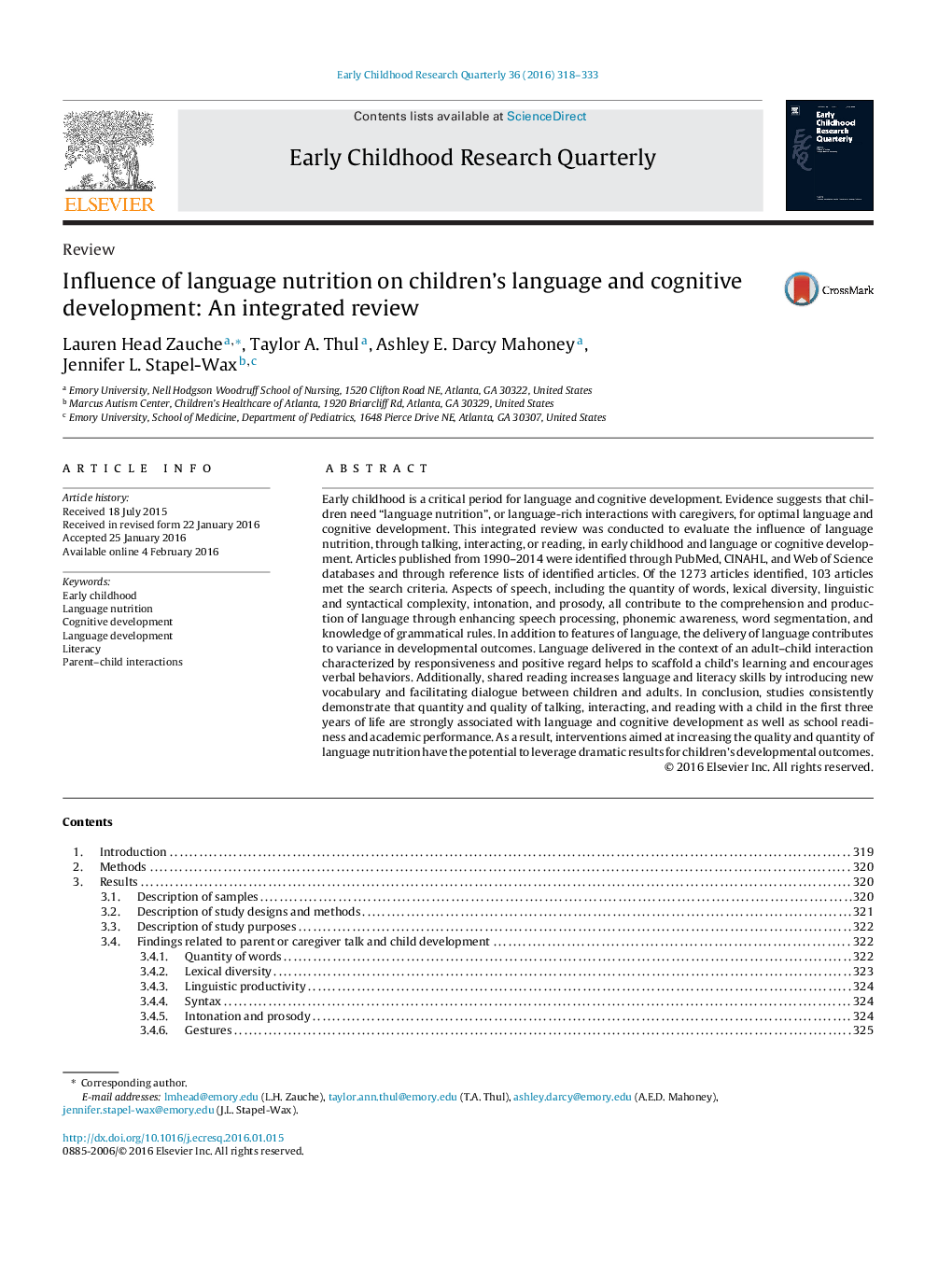| کد مقاله | کد نشریه | سال انتشار | مقاله انگلیسی | نسخه تمام متن |
|---|---|---|---|---|
| 353668 | 618936 | 2016 | 16 صفحه PDF | دانلود رایگان |
• Language nutrition refers to language-rich interactions that facilitate development.
• Child-directed speech varied in intontation, syntax, and words aids in language learning.
• Social interactions characterized by responsiveness are crucial for neurodevelopment.
• Shared dialogic reading positively influences children’s literacy/language skills.
• Teaching families how to provide language nutrition may support child development.
Early childhood is a critical period for language and cognitive development. Evidence suggests that children need “language nutrition”, or language-rich interactions with caregivers, for optimal language and cognitive development. This integrated review was conducted to evaluate the influence of language nutrition, through talking, interacting, or reading, in early childhood and language or cognitive development. Articles published from 1990–2014 were identified through PubMed, CINAHL, and Web of Science databases and through reference lists of identified articles. Of the 1273 articles identified, 103 articles met the search criteria. Aspects of speech, including the quantity of words, lexical diversity, linguistic and syntactical complexity, intonation, and prosody, all contribute to the comprehension and production of language through enhancing speech processing, phonemic awareness, word segmentation, and knowledge of grammatical rules. In addition to features of language, the delivery of language contributes to variance in developmental outcomes. Language delivered in the context of an adult–child interaction characterized by responsiveness and positive regard helps to scaffold a child’s learning and encourages verbal behaviors. Additionally, shared reading increases language and literacy skills by introducing new vocabulary and facilitating dialogue between children and adults. In conclusion, studies consistently demonstrate that quantity and quality of talking, interacting, and reading with a child in the first three years of life are strongly associated with language and cognitive development as well as school readiness and academic performance. As a result, interventions aimed at increasing the quality and quantity of language nutrition have the potential to leverage dramatic results for children’s developmental outcomes.
Journal: Early Childhood Research Quarterly - Volume 36, 3rd Quarter 2016, Pages 318–333
